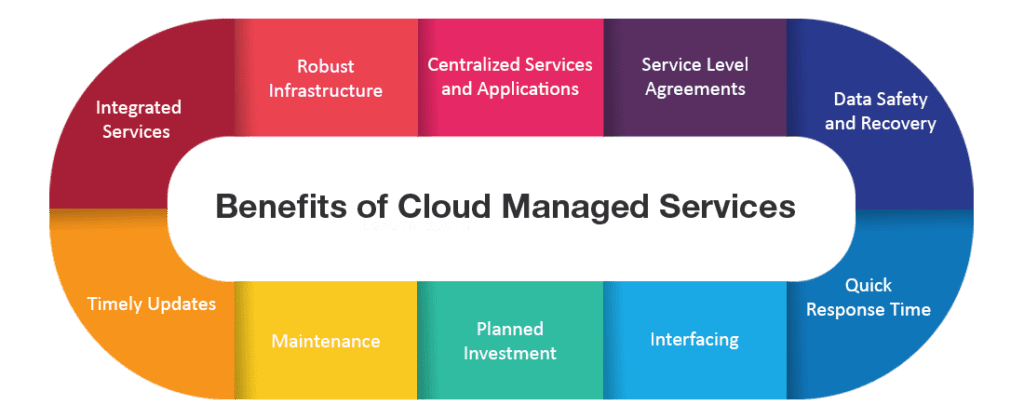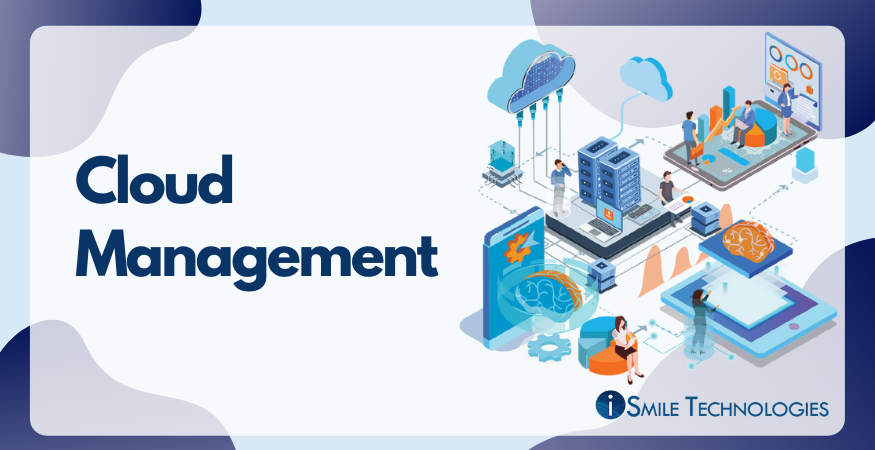The exercise of control over public, private, or hybrid cloud infrastructure resources and services is referred to as cloud management. A well-planned cloud management approach may assist IT professionals in controlling such dynamic and scalable computing environments.
Cloud management may also assist companies in achieving three objectives:
- Self-service refers to the flexibility gained by IT professionals when they access cloud resources, create new ones, track use and costs, and change resource allocations.
- Workflow automation enables operations teams to manage cloud instances without the need for manual intervention.
- Cloud analysis aids in the tracking of cloud workloads and user experiences.
Any cloud management plan will struggle to thrive in the absence of a skilled IT team. These personnel must be knowledgeable about the appropriate technologies and best practises while keeping the business’s cloud management goals in mind.

Importance of cloud management services
Companies that use tried-and-true cloud optimization techniques are more likely to enhance cloud computing performance, dependability, cost control, and environmental sustainability.
There are several approaches to cloud management, and they should be used in tandem. Cost-monitoring software can assist IT departments in navigating complicated vendor pricing patterns. When applications employ performance optimization techniques and architectures developed using established approaches, they operate more efficiently. Many of these technologies and initiatives complement ecologically efficient architecture strategies for reducing energy usage. Because there is no standard strategy to cloud management, decisions must ultimately be based on unique company interests and objectives.
Cloud management characteristics and goals:
Cloud sprawl, which is exactly what it sounds like: IT personnel loses track of cloud resources, which subsequently expand uncontrollably throughout the business, is arguably the most difficult issue to cloud management. Cloud sprawl may raise expenses while also causing security and management issues, therefore IT departments must implement governance policies and role-based access restrictions.
Begin with a cloud migration strategy that includes adequate documentation and ensures that only essential data and workloads are moved off-site. Consider multi-cloud management, user self-service portals, and other kinds of provisioning and orchestration.
Cloud management solutions give a unified picture of all cloud resources, making it easier to monitor both internal and external cloud services. Management platform solutions can assist in guiding all personnel that interact with an application’s lifetime. Regular audits can help keep resources under control. Finally, think about using third-party solutions to fine-tune enterprise use, performance, cost, and business advantages.
Set metrics to assist in identifying patterns and providing direction on what you want to monitor and track over time. There are several potential data points, but each company should select the ones that are most important to its operations. Take into account the following:
- Data about the usage of a compute instance’s volume and performance (CPU, memory, disc, etc.) gives information on the overall health of the application.
- Storage usage refers to storage that is associated with compute instances.
- Incoming network traffic is distributed via load-balancing services.
- Database instances aid in the collection and analysis of data.
- Cache instances employ RAM to store frequently requested data, avoiding the requirement for slower media such as disc storage.








